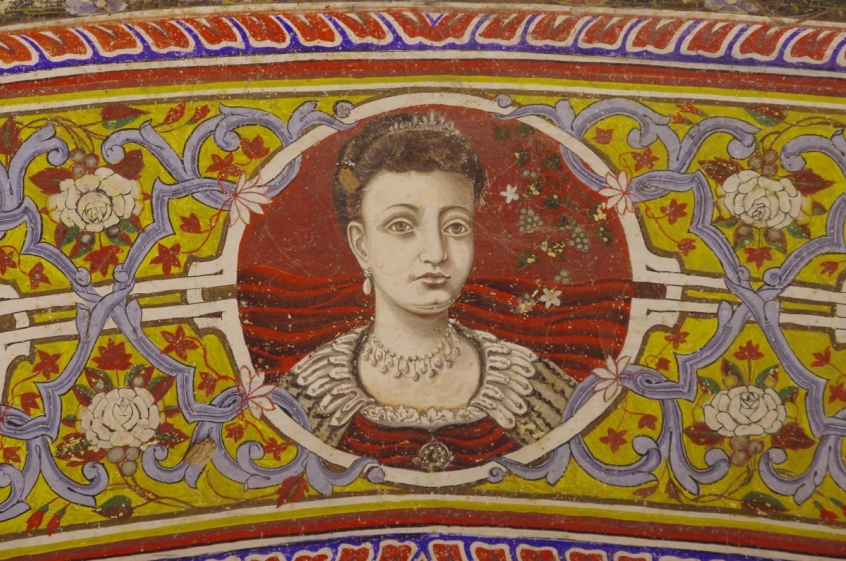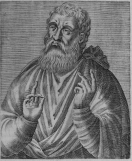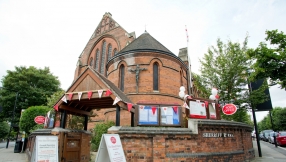
The remote Shekhawati region of Rajasthan in India is an arid part of the country in which many towns have, commercially, seen better days. Parts of it are very beautiful, and one of the things it's known for is its havelis, ancient mansions that belonged to prosperous merchants. Many of them are run-down and deserted now, but it's possible to see how magnificent they must once have been. Because of complicated rules about inheritance, many of them are crumbling away because no one can decide who's responsible for them.
One of the features of these havelis is the wonderful frescoes that decorate them. There are paintings of scenes from Indian mythology, domestic scenes, animals, soldiers, birds. Some of them are a hundred years old, some much older. And as well as these traditional paintings, there are others that seem slightly out of place. That's because they also served as public information boards, educating people about the wider world beyond their village. So there might be a picture of a train – a steam-train, of course – or of Queen Victoria, taken from a postcard.
One image stood out when I visited last year – a picture of Jesus. The people of the region are Hindus, and Hindus have 36 million gods. So someone must have asked: what does the God of the Christians look like? And a traditional image of Christ joined the other pictures on the wall.
That question "What is Christ like?" is a profound one, and fundamental to what we do when we do mission or just live in the world as his disciples. At one level it's possible to distance ourselves from it and say, "Go and read the Bible; that will tell you all you need to know." But it's not as simple as that.
We are to be the sort of people in whom Christ is seen and known. We are to be Christlike people. We are to be the people who act as signposts to him, reflections – pale reflections – of his love and mercy.
The apostle Paul wrote to the Corinthians: "You show that you are a letter from Christ, the result of our ministry, written not with ink but with the Spirit of the living God, not on tablets of stone but on tablets of human hearts" (2 Corinthians 3:3).
St Teresa of Avila said: "Christ has no body now on earth but yours, no hands but yours, no feet but yours, yours are the eyes through which Christ's compassion is to look out to the earth, yours are the feet by which He is to go about doing good, and yours are the hands by which He is to bless us now."
You can't tell what Jesus is like by looking at a picture on a wall. But you ought to be able to tell what he's like by looking at his disciples.
Follow Mark Woods on Twitter: @RevMarkWoods

















